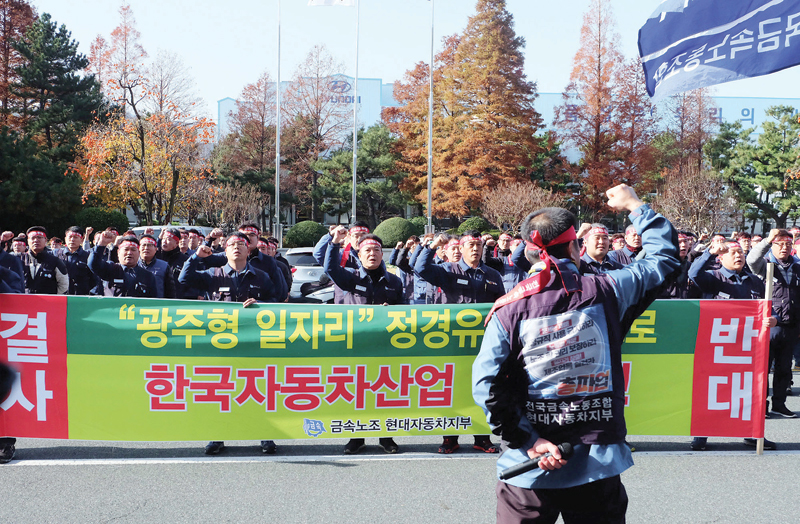

SEOUL: South Korea’s Hyundai Motor and a local government partner are aiming to sign a final deal this week on a low-cost carmaking joint venture despite stiff opposition from labour unions who fear the move would cause job losses and cut wages.
In a first such move for Korea’s biggest automaker, Hyundai and the southwestern city of Gwangju agreed on Tuesday on a preliminary deal to jointly build a new factory which will have an annual capacity of 100,000 mini-SUVs starting in 2021.
The move would help Hyundai produce the model at lower cost and cut reliance on its unionised workers who have resorted to strikes almost every year to raise wages.
It would also better align the automaker with the government of President Moon Jae-in, which is struggling to keep manufacturing jobs from moving overseas amid US President Donald Trump’s threats to impose hefty tariffs on vehicle imports.
Gwangju is home to Hyundai affiliate Kia Motors’ factories and the political stronghold of the liberal Moon government, which has made job creation its top election pledge.
Hyundai is expected to invest 53 billion won ($47.5 million) for a 19 per cent stake in the joint venture, while Gwangju will spend 59 billion won for a 21 per cent stake. The rest 167 billion won will be provided by suppliers and the local economy.
The preliminary agreement includes an annual wage of 35 million won ($31,492), a city official said. The annual wage is less than half the average 92 million won wage for existing Hyundai workers.
Hyundai declined to comment.
The plan, which the city government said will create 12,000 jobs, has already met with disapproval from Hyundai and Kia’s labour unions.
Hyundai’s over 50,000-member union on Tuesday warned of a full strike, fearing the move may put pressure on wages and potentially take away production and jobs from the company’s existing plants in Ulsan and other cities. — Reuters
Oman Observer is now on the WhatsApp channel. Click here



